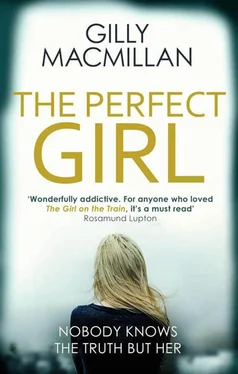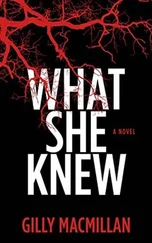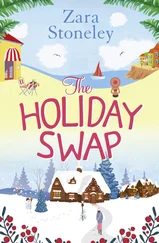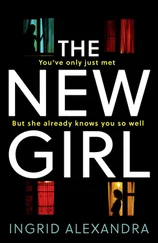When I realise that his hands have stilled, and that I’m playing on my own, I keep going at first, glancing at him because I wonder if he’s forgotten his part. We’re playing the duet from memory, and that happens sometimes: your brain just freezes.
So I’m expecting him to pick up the melody at any moment, I’m willing him to remember, because this concert must be perfect, and I’m doing that right up until the moment when I work out that he’s properly stopped, because a man is standing in the centre of the aisle.
So I stop playing too and, as the last vibrations from my chords die away, I look at the man, and I think I might recognise him.
The expression on his face is smudged out of normal. It’s in no way appreciative of our playing, it’s red with rage; the tendons on his neck are straining so much that they look like extra bones.
‘It’s a travesty!’ he shouts. ‘A travesty! It’s disrespectful!’ His words ricochet around the space, and one or two people stand up.
He’s staring at me and I realise that I do know him.
I know him because I killed his daughter.
The piano stool makes very little noise when I stand up, because even though it tips over, it’s on a square of crimson carpet that breaks the sound of its fall so that it’s a dull thud only.
My mother rises from her seat. She knows the man too.
‘Mr Barlow,’ she says. ‘Mr Barlow, Tom, please,’ and she starts to walk towards him.
I don’t stay. I’m too afraid of what he might do to me.
I leave the stage, my hip clashing painfully with the edge of the piano, and I flee towards the back of the church, away from him, to where there’s a doorway behind the altar that takes me out of his sight. I shove through it, then clatter down slippery stone steps into a tiny room where there’s just a sink draped with stained cloths and I crouch in a corner, shaking, drenched yet again with the cold sweat of my remorse, with the impossibility of this life of mine, of second chances or fresh starts, until eventually my mum finds me.
She says words that mean nothing but are an attempt to make me feel better. She says them to me in a hushed voice, and her hand smooths the hair on my head, smooths it lightly down my back. She says, ‘Shush now. Shush,’ but I’m not sure if that’s because she wants to comfort me or because she wants my sobbing to quieten down so nobody else can hear me.
Fifteen minutes later – it takes that long for us to be sure that they’ve got rid of Thomas Barlow and his raging grief – she leads me out of a back door, through the graveyard, and towards the car.
There’s no question that I’ll perform now. I’m still shaking, and the notes are all jumbled in my head anyway.
Outside, I take in the fact that the night is deeply dusky and warm, and that feels like a balm after the cold air inside. I notice a strong smell from the glowing white roses that hang over the churchyard gate, and the dark fluttering of bats that swarm from a high corner of the church tower. Around us, as we walk in the tired grass, gravestones whose cadaverous foundations have failed them lean against one another for support. I see a Celtic cross, the contours of lichen-covered stone mounds, writing everywhere, words of remembrance, and, above us, the dark, pointed leaves of the yew tree greedily sucking away the last of the light.
From inside the church we hear the sound of Lucas beginning his Debussy. The show must go on. The sound is a warm bath of notes at first, then a river flowing. It’s something beautiful, which I wrap around me to shield me from what’s just happened.
It diverts me from looking down at the edges of path where there’s a plaque that has been recently laid. ‘Amelia Barlow’ is inscribed on it. ‘Aged 15. Beloved by family, cherished by friends. The sun shone brighter when you were alive.’ There are freshly tended flowers planted around it.
We didn’t know that her family had laid a plaque for her there. We would never have hired that church as a venue if we’d known, never in a million years. Continents would have drifted and reformed before we’d have done that.
For the whole drive home my mum says almost nothing, apart from, ‘It doesn’t matter. We can reorganise the concert, and you’ll be ready for the diploma. You’re already ready.’
My mother: who never talks about what really matters, and who is trying to reassure me, because although public musical performance at the child prodigy level was my downfall tonight, she believes it’s ultimately going to be my salvation. She believes that it was the catalyst for our second life, and that it will also be the fuel that will propel it into a stratosphere that is a gazillion light years away from our life so far.
And perhaps I should have listened harder when she spoke because it was the last time she ever truly reassured me, the last time I felt the frustration of our inability to connect with each other prickle the air between us.
Perhaps I should have emerged from the cocoon of my own misery to ask her if she was OK, even though that was the one thing we hadn’t been for the past few years. We hadn’t been OK.
But I wish I had. Asked her, I mean. I wish I had.
In the bathroom of my flat, after ending the call with Jeanette, and feeling a coruscating dread at the thought of having to break the news to Tessa, I sit for a moment longer and remember when I was first introduced to Zoe Maisey, or Zoe Guerin as she was known then.
My first encounter with Zoe was over three years previously, when I lived in North Devon, and the introduction came in the form of a phone call from the Defence Solicitor Call Centre, because I was the solicitor on duty when she was arrested.
The call came in at nine-thirty in the morning, about eight hours after the accident had happened. They described Zoe and her situation as follows:
‘Juvenile, appropriate adult present, charge is death by careless driving, two fatalities, another critically injured, ready for interview at Barnstaple Police Station and your Duty Solicitor number is 00746387A.’
I phoned the custody suite at the police station right away, identified myself, and asked the custody sergeant to put Zoe on the phone.
‘Hello?’ she said.
I introduced myself. ‘Don’t tell the police anything about the accident,’ I said. ‘I’m on my way. I’ll be about forty-five minutes. Don’t start any interviews without me.’
And in reply she said, ‘OK,’ in a voice that sounded quiet with shock, and she had not a single question that she wanted to ask me.
I drove through the countryside to get to the police station. It was a beautiful, cold morning. I passed white frosted fields bordered by hedges that were a couple of feet thick, sturdy and sinuous at once as they partitioned off the surrounding fields, and stripped of leaves by the winter but so dense that the shadows they cast were deep horizontal bands. The blue-grey ocean, surprisingly calm, was visible here and there where clefts in the landscape revealed it, and Lundy Island was clear as day offshore, peaceful, ancient and cold.
In the custody suite in Barnstaple the sergeant handed me a charge sheet.
‘She won’t have her mother with her,’ he said. ‘She refused, even though Mum’s here. Social worker’s just arrived. She didn’t want a brief either but the social worker overruled her.’
I scanned the charge sheet. It wasn’t quite as they’d said on the phone. The charge was: ‘Death by careless driving’ but there was an addition: ‘whilst under the influence of alcohol’.
It was a shocking charge for anybody to face, but for a fourteen-year-old, whose life had been stretching out lazily before them just hours earlier, still packed with potential, it was nothing short of horrific.
Читать дальше












